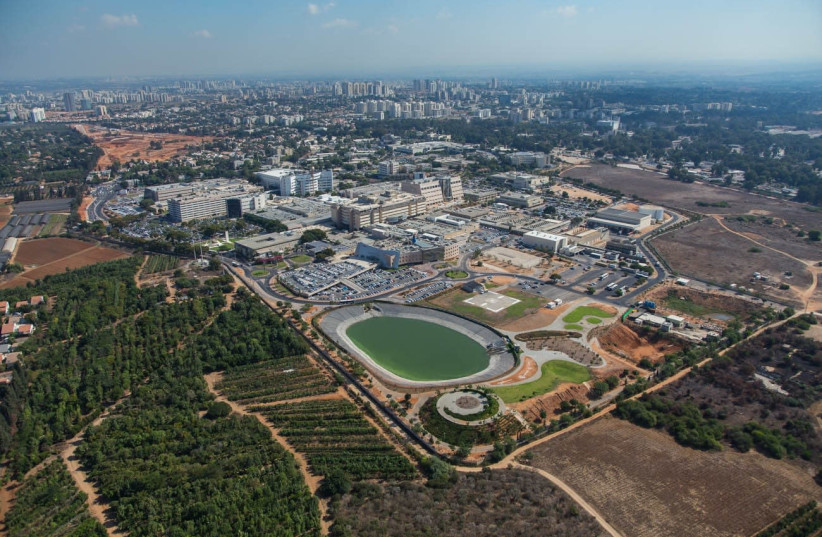Sheba Medical Center in Ramat Gan on Wednesday announced the opening of a specialized clinic for Bukharan Jews with oculopharyngeal muscular dystrophy (OPMD), a genetic disease.
The clinic, which is run by neurologist Dr. Shahar Shelly, Dr. Amir Dori, who heads Sheba Medical Center's EMG laboratory, and OPMD case manager Dr. Alex Zvulunov, use a "multifaceted" approach to diagnosis, treatment and follow-up with OPMD patients. The three have put together a team including ENTs, neurologists, communication clinicians, oral and maxillofacial physicians and ophthalmologists, according to the hospital.
Services at the clinic include genetic testing to detect OPMD, which the hospital said it "allows for the creation of a national database for advanced research in preventing OPMD."
“Building on these advances, we hope to soon be able to provide the first ever FDA approved treatment for OPMD patients.”
Dr. Shahar Shelly
“This type of clinic, with expertise in a range of subspecialties, gives OPMD patients comprehensive diagnosis and treatment possibilities under the same roof for the first time,” Shelly said. “This national registry will allow faster advanced genetic testing, so we can both identify the disease earlier and predict its eventual severity. Building on these advances, we hope to soon be able to provide the first ever FDA approved treatment for OPMD patients.”
Symptoms
Symptoms of the disease usually present between ages 40 and 50 and may include difficulty swallowing, coughing while eating or drinking, thick saliva, droopy eyelids and muscle weakness. Symptoms become increasingly debilitating over time and significantly reduce life expectancy.

OPMD is present on five continents and is common among French Canadians, Hispanic New Mexicans, and Jews of Bukharan and Bulgarian ancestry. Among Bukharan Jews, the disease is found at a ratio of 1 to 600, compared to about 1 in 100,000 in the general population.
Further research
Cutting-edge genetic therapy for the treatment of OPMD is currently being researched and is projected to be tested in an international clinical study next year. Sheba Medical Center said it is working to bring the treatment to Israel following this study.
